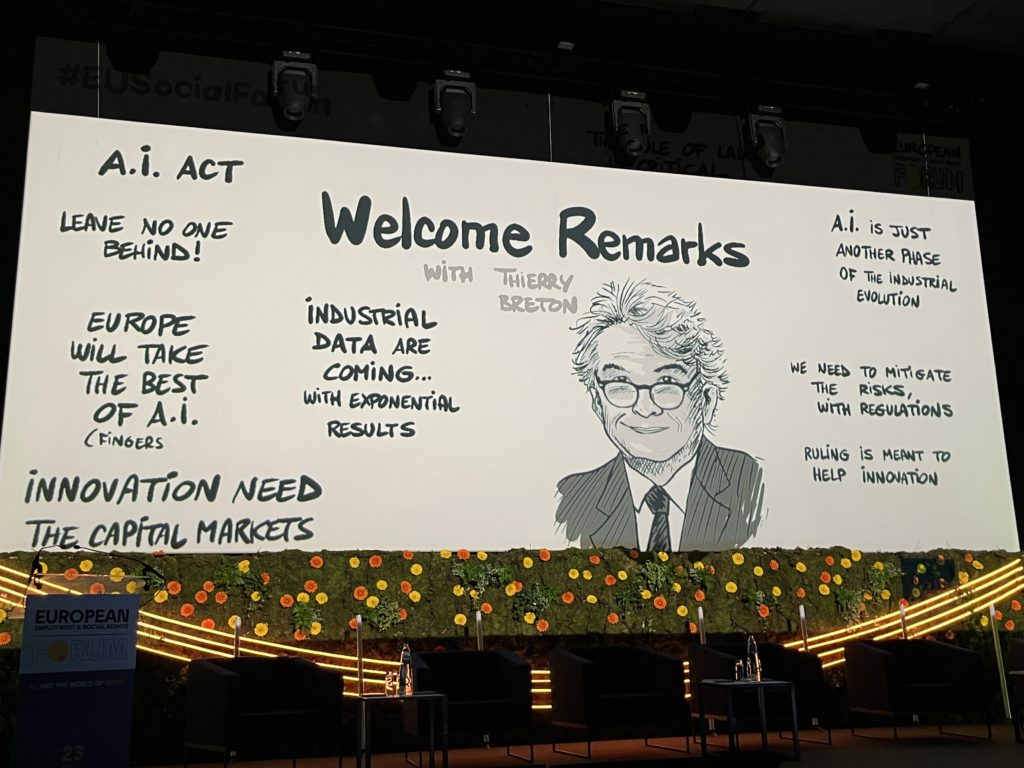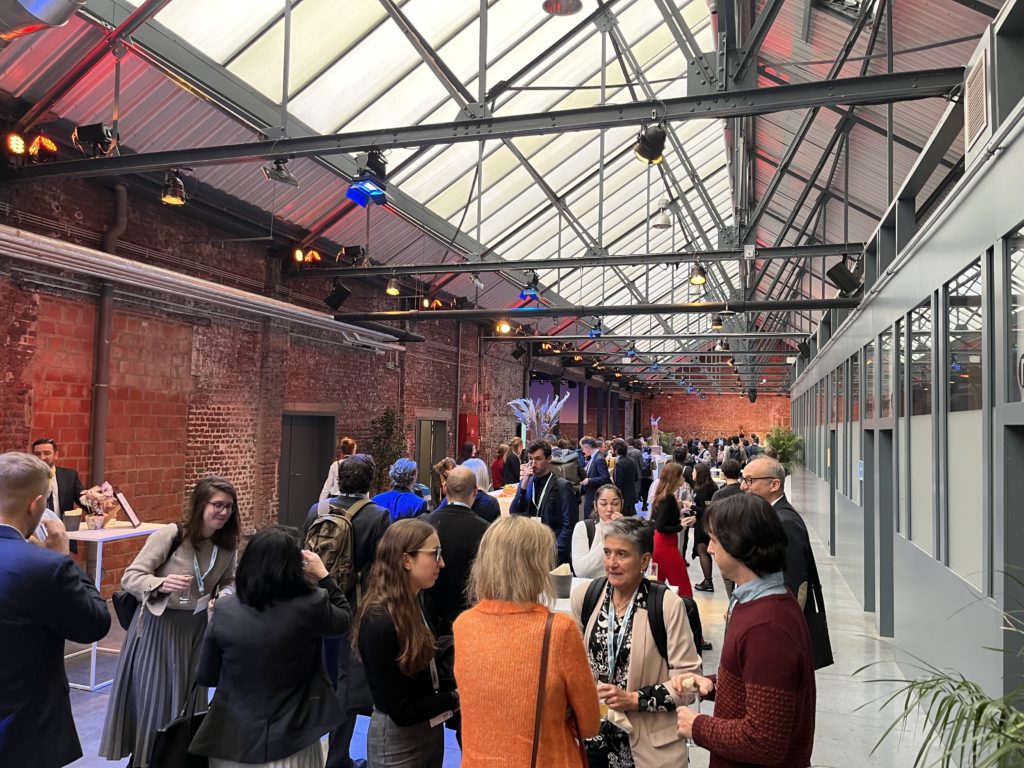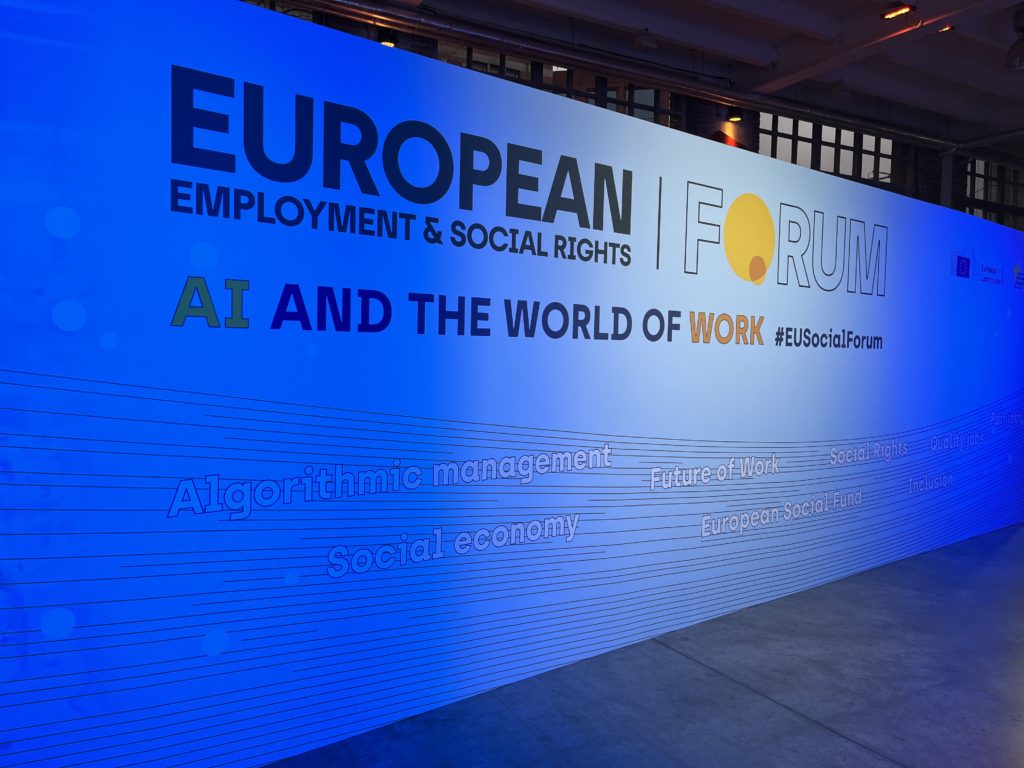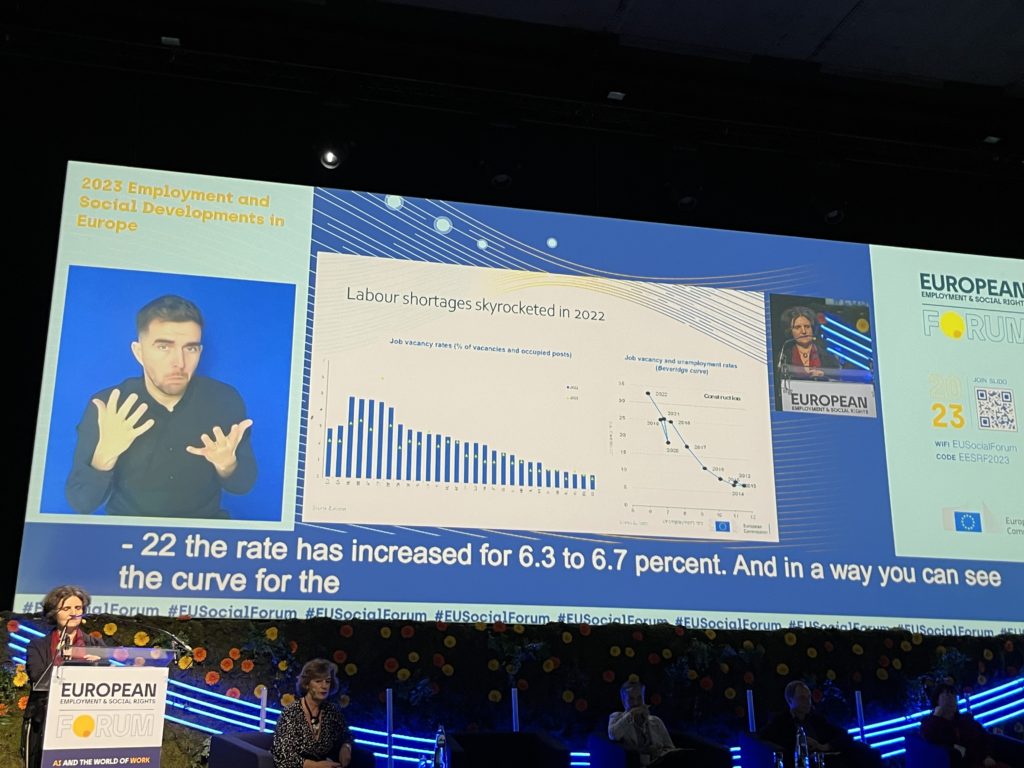EU Commissioners, economists and policymakers consider AI and the world of work

Last week in Brussels the European Commission hosted their second European Employment & Social Rights Forum. Speakers ranging from university professors to labor leaders to European Commission officials took on the question of how AI will affect the world of work. Their thinking on the impact of AI varied widely.
The two-day conference kicked off with a welcome from Joost Korte, Director-General of Social Affairs and Inclusion at the European Commission. “We must think about the right regulatory framework, with humans in control,” said Korte. The themes of human control and how to regulate AI threaded across both conference days.

Day one continued with a keynote speech from Nobel-winning economist Chris Pissarides of the London School of Economics. According to Pissarides, industrial revolutions don’t happen frequently, but when they do the economy and labor market have to transform. The question becomes how big the transformation will be.
Pissarides highlighted how the service sector has grown in advanced economies, and how tourism and travel as economic segments didn’t meaningfully exist a hundred years ago. Pissarides expects the service sector to continue to grow. He concluded his speech the belief that there will not be a job shortage. Instead, we will need to have the right skills to flourish with AI.
“The impact of new technologies depends on the structure of our socities.” -Augustine Courtier, Co-Founder, Latitudes

The same themes came up across the 70+ conference speakers:
- AI can help overcome labor shortages, but it must not come at the expense of workers’ rights
- AI could lead to more inequality and could invade worker privacy
- Firms in Europe lack skilled workers
- The EU needs to enable entrepreneurs so they have better data sets, beyond open source
- It’s not whether technology is good or bad. It’s whether human beings are at the center of it
- The skills shortage is a demographic shortage
“Instead of asking ‘am I protecting our values?’ we need to ask if AI is aligning with our values. It’s not a technical problem to solve.” -Olivia Gambelin, Founder, Ethical Intelligence

During ‘Skills in the age of AI’ Laetitia Cailleteau, Managing Director at Accenture, shared that, “sixty percent of the jobs today didn’t exist in 1940,” speaking to the idea that AI will bring new occupations we can’t yet picture. In her work Cailleteau sees segments of insurance and financial services already being impacted.

Day 2 brought ‘Algorithmic Management in Traditional Workplaces’, a session on the dangers of automating hiring, managing and firing workers. The technology is moving quickly and existing software can take on some of these functions already.
Panelist Annette Bernhardt of UC Berkeley said she could think of positive uses of AI in the workplace, making jobs safer and more interesting. Her concerns about the harms centered on the lack of data in the US, especially about how many businesses are currently using AI. We just don’t know.
“The loss of autonomy and dignity is much harder to get data on,” said Bernhardt. “These are systems that effectively automate the human, monitor at the micro level everything the worker does, and guide exact sequences of tasks the worker does. It’s a dystopian version of people turned into machines. Now is the time to get our bearings on the regulations.”
